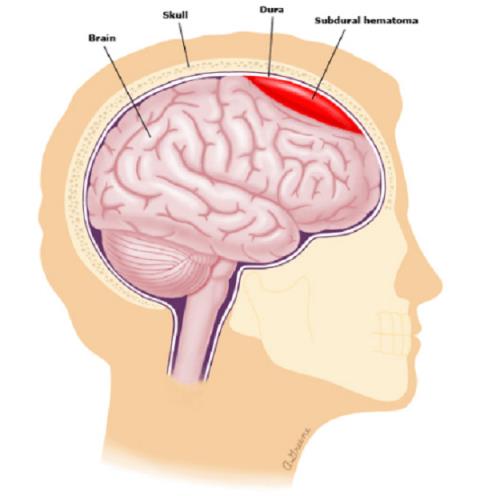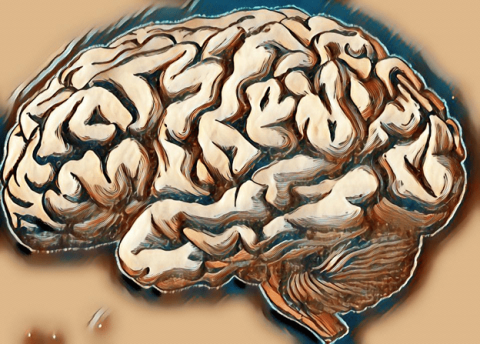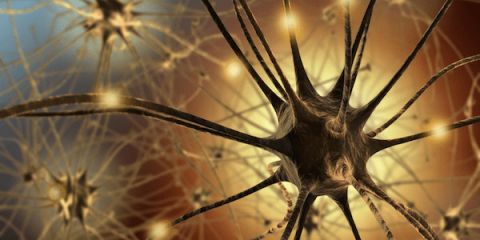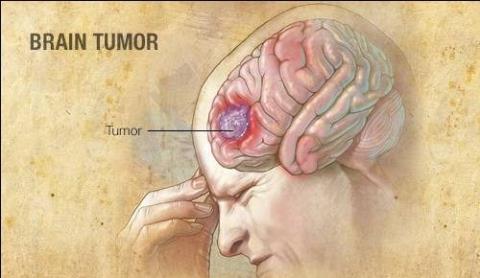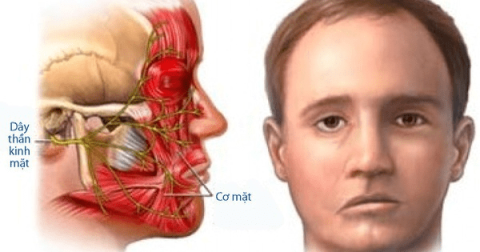Concussion: Causes, diagnosis and treatment

Concussions can occur at any age, and are usually caused by a fall. So is concussion dangerous? Post by Master, Doctor Vu Thanh Do

Multiple system atrophy (MSA) is a rare neurodegenerative disorder. Symptoms are variable, and can be life-threatening. So can this disease be completely cured? Let's find out with SignsSymptomsList.
content
What is multiple system atrophy?
Multiple system atrophy (MSA) is a rare neurodegenerative disorder. They affect the autonomic nervous system. They govern blood pressure, breathing, bladder function, and muscle control.
Previously, the disease was known as Shy-Drager syndrome. Multisystem atrophy presents with symptoms similar to Parkinson's disease, such as slowness of movement, muscle stiffness, and impaired balance.
Treatment of multisystem atrophy includes medications and lifestyle changes. Although they do not cure the disease completely, they can help reduce symptoms. The disease will progress gradually and can be life-threatening.
What are the signs and symptoms of multisystem atrophy?
Multisystem atrophy (MSA) affects many organs. Symptoms usually appear in adulthood, usually in the 50s or 60s.
The disease is divided into two types: Parkinson's and cerebellar types. Depending on the type of multisystem atrophy, there are different symptoms.
Parkinson's multisystem atrophy
This is the most common type of multisystem atrophy. Signs and symptoms are similar to those of Parkinson's disease, including:
Cerebellar multisystem atrophy
The main signs and symptoms of this condition are problems with muscle coordination (ataxia). In addition, the patient may also have:

Affected people may have difficulty speaking, swallowing, and many other symptoms
Some other general signs and symptoms:
In addition to the symptoms mentioned above, some common symptoms of multi-organ atrophy:
Multisystem atrophy can cause abnormalities in the autonomic nervous system, including:
Urinary and intestinal dysfunction:
Sweating abnormally
Sleep disorders
Sexual dysfunction
Cardiovascular problems
Mental problems
When should you see a doctor?
If you have any of the signs or symptoms that might be associated with multiple system atrophy, see your doctor right away. Your doctor will help you evaluate and accurately diagnose the disease you are suffering from. If you've been diagnosed with multiple system atrophy, go to the hospital right away if you develop new symptoms or your symptoms get worse.
What causes multiple system atrophy?
Experts still don't know the exact cause of multisystem atrophy. They are still working to see if heredity or environment affects the course of the disease. However, there is currently no substantial evidence to support these hypotheses.
Multisystem atrophy damages and shrinks (atrophy) parts of the brain (cerebellum, basal ganglia, and brain stem). These are brain regions that help regulate internal body functions, digestion, and control movement.
Under the microscope, the damaged brain areas of the patients showed nerve cells containing an abnormal protein called alpha-synuclein. Several studies have shown that this protein induces symptoms of multiple system atrophy.
What are the complications of multisystem atrophy?
The course of MSA is complex, but the disease often does not go into remission. The disease progresses gradually and can affect the patient's daily activities.
Some possible complications include:
Patients usually live 7 to 10 years after the first symptoms of polymyositis appear. However, survival time for people with MSA varies widely from person to person. In rare cases, patients can live up to 15 years or longer. Death is usually due to respiratory failure.
How is multisystem atrophy diagnosed?
Diagnosis of multiple system atrophy (MSA) can be difficult. Some of the signs and symptoms of the disease — such as muscle stiffness and abnormal gait — also occur with other disorders, such as Parkinson's disease. As a result, the diagnosis can be more difficult. A physical examination, with various automated tests and imaging, can help the physician determine if a patient has multisystem atrophy.
In addition, your doctor may recommend additional tests to determine if your symptoms are caused by multisystem atrophy.
If your doctor suspects you have multisystem atrophy, they'll take your medical history and order more blood tests and brain imaging, such as an MRI, to determine if you really have MSA. Are not.
Tilt table test
This test can help your doctor determine if you have an abnormality in blood pressure regulation. This is a routine, you lie on a flat table. The table will be tilted to a 70 degree angle.
During the tilt table test, your doctor will monitor your blood pressure and heart rate.
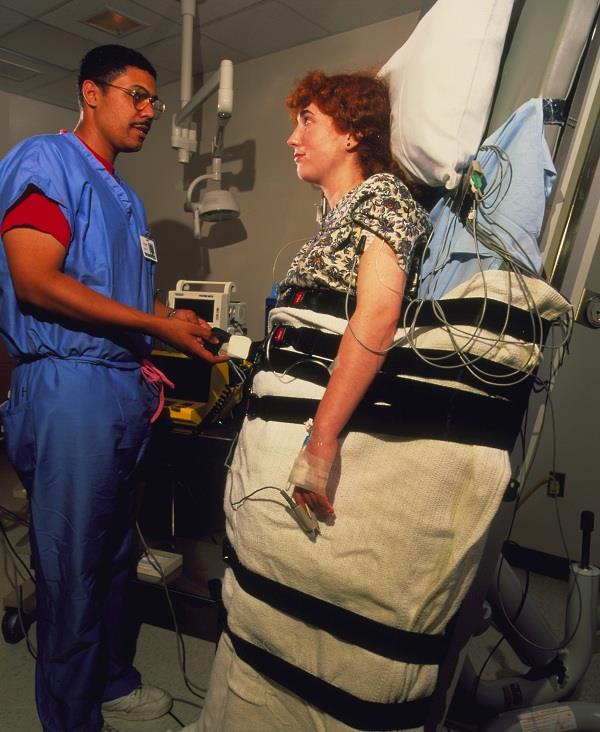
Study table test
Tests to evaluate autonomic nervous system functions
Doctors may order other tests to evaluate your body's autonomic functions, including:
In addition, if you have sleep abnormalities, such as snoring or airway abnormalities, your doctor may recommend a sleep assessment. This can help your doctor diagnose an underlying sleep disorder, such as sleep apnea, and get appropriate treatment.
What treatments help with multisystem atrophy?
In fact, there is no complete cure for multiple system atrophy. The main purpose of treatment is to relieve symptoms, thereby helping patients improve their quality of life and maintain organ functions.
To treat specific signs of disease, doctors recommend the following treatment options:
Medicines to help raise blood pressure.
Medications to reduce Parkinson's-like symptoms
Some medications used to treat Parkinson's disease, such as levodopa combined with carbidopa, can be used to help relieve Parkinson's-like signs and symptoms, such as stiffness, however, not all Patients with multisystem atrophy respond well to Parkinson's medications. In addition, these drugs may decrease in effectiveness after a few years.
Erectile dysfunction medication
To treat erectile dysfunction, your doctor may prescribe certain medications, such as sildenafil (Viagra).
Control difficulty swallowing and breathing
If you have trouble swallowing, try eating softer foods. If your difficulty swallowing or breathing gets worse, you will likely be fed with a catheter.
Treatment of bladder abnormalities
If you are having problems with bladder control, medication can be effective in the early stages of the disease. However, as the disease progresses, you may need to permanently place a flexible catheter in your bladder to drain urine.
Physiotherapists
A physical therapist can help you keep your mobility and muscles at the best possible level.
Additionally, a linguist can help you improve or maintain your voice.
What measures help control multisystem atrophy?
Doctors often recommend taking the following measures to ease symptoms such as:

People with multiple system atrophy need to eat more fiber
In short, multisystem atrophy is a rare disease. Until now, experts still do not fully understand the pathogenesis of the disease. Manifestations of the disease are very complex, sometimes appearing in the whole body, progressing gradually and can be life-threatening. Therefore, if you suspect you have this disease, see your doctor immediately.
Doctor Vu Thanh Do
Concussions can occur at any age, and are usually caused by a fall. So is concussion dangerous? Post by Master, Doctor Vu Thanh Do
Article by Doctor Ngo Minh Quan about subdural hematoma. This is a common bleeding condition in the subdural space in traumatic brain injury
Leukodystrophy is a rare genetic disorder. Let's learn more about this disease in the following article!
The article was consulted by medical doctor Dao Thi Thu Huong about absence epilepsy, a disease more common in children than in adults.
Primary lateral sclerosis can affect motor neurons. Causes, symptoms and treatment of the disease will be shared in the article right below.
Shingles is an infection caused by the Varicella virus. Affects skin and nerves with blistering and burning sensation
Doctor Vu Thanh Do's article on Multisystem atrophy - governs blood pressure, breathing, bladder function and muscle control.
Also learn about brain cancer through the article of Dr. Le Hoang Ngoc Tram to understand the symptoms, causes and treatment methods of this disease.
What is a hemifacial convulsion? What are the causes, symptoms and treatment of this disease? Let's find out right in the following article!
